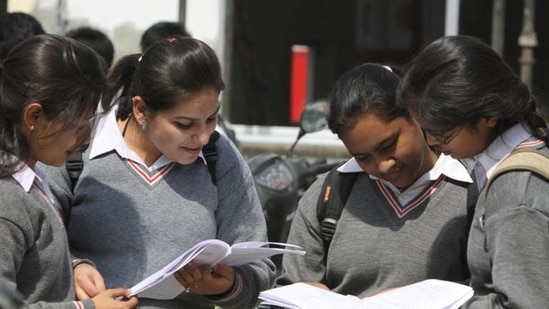Focus on civic literacy, social problems in Delhi govt’s deshbhakti curriculum
New Delhi: Love and respect for the country, tolerance for differences, contribution towards nation-building, and developing value system by introspection rather than coercion – these are among the topics addressed by the newly-launched deshbhakti curriculum which will be launched in government schools in the Capital next month.
New Delhi: Love and respect for the country, tolerance for differences, contribution towards nation-building, and developing value system by introspection rather than coercion – these are among the topics addressed by the newly-launched deshbhakti curriculum which will be launched in government schools in the Capital next month.

“Starting from September 27, the birth anniversary of Shaheed-e-Azam Bhagat Singh, Deshbhakti Curriculum will be taught daily for 45 minutes in government schools to students from nursery to class 8. We will instil a sense of pride and love towards the country in our children through the curriculum,” said chief minister Arvind Kejriwal on Sunday.
The curriculum, which has been developed into different stages for classes from nursery to class 8, saw the involvement of 41 mentor teachers, nine NGO partners and experts who played a significant role in the pilot run conducted between June and July.
Anju Rohilla, former mentor teacher who was involved in the pilot project, said, “After the pilot run, my students gave me feedback that they had not thought about patriotism in so much detail before these classes. They knew that they love the country but through questions like what do they love about the country and its people, they delved deeper into the concept of patriotism. Through the course of conversation, children started introspecting why some people in the country were fighting or mocking each other if they indeed were patriotic and loved their people.”
According to the curriculum framework released by the government on Saturday, a copy of which is with HT, the curriculum builds on interdisciplinary themes of civic literacy, environmental literacy, and global awareness. “Several successful education systems around the world, including countries like Singapore, Japan, Canada, and Australia, have adapted curricula aimed at instilling feelings of pride and responsibility towards the country, building an understanding of democratic values, civic education and citizen engagement and participation to resolve current and future challenges,” it stated.
“Deshbhakti curriculum actively seeks to build a sense of belongingness, ownership and responsibility towards the nation amongst students, which would also inspire them to make necessary sacrifices for the country. These values are sought to be developed in students by facilitating critical and creative thinking skills rather than by coercion,” the document stated.
The curriculum would cover three broad themes – knowledge of constitutional values, history of freedom struggle, Indian achievements, social problems and inequalities; values like honesty, loyalty, love for the country, sacrifice, and empathy; and behaviour involving scientific reasoning and mindset, standing up against injustice, respect for national symbols, and pluralism, among others.
Like the previous two curricula – Happiness and Entrepreneurship Mindset – introduced by the Delhi government, there will be no textbooks or formal assessment system for the Deshbhakti Curriculum and teachers will be given a handbook comprising the different themes and a list of activities to be covered in the classes. The new curriculum also shares several learning outcomes – including problem-solving, self-awareness, self-confidence, and collaboration – like the previous two curricula.
Arti Qanungo, who was involved in the curriculum’s content development team, said, “We have included true stories and incidents to help students understand that helping someone needy, avoiding wastage of water, not destroying monuments, planting trees, is also ‘deshbhakti’.”
During the pilot runs, teachers said, they focused on instances like making videos of those injured in a road accident as prompts to initiate discussion in class. “After describing the incident, we asked students if they should help the injured or walk away after sharing the video on social media. This helps children introspect. While talking about wastage of food, we urge students to think about where the food comes from and think of farmers who grow them. This way we make them more mindful of the contribution of farmers towards nation-building,” Qanungo said.
Poonam Batra, professor of Education at Delhi University, said, “Ideas of patriotism are embedded in our constitutional values of democracy, fraternity, liberty, equality and justice. These can be taught to children by ensuring that they have lived experiences of these values in schools and classrooms instead of teaching them through definitions and sermons. The current political climate encourages a rhetorical view of patriotism and nationalism that is not only narrow but one that glosses over core Constitutional commitments.”





